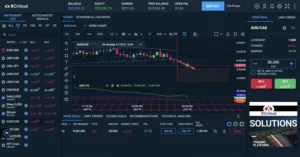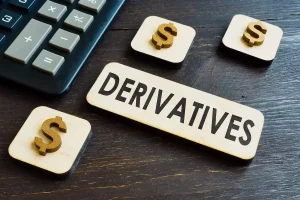Broker charges refer to the fees or commissions that individuals or entities pay to a broker for their services in facilitating various financial transactions. Selecting a brokerage account with the most suitable charges is pivotal whether you are an active or passive investor. This article will discuss their different types, what is a typical brokerage fee and the difference between fees and commissions.
Understanding Brokerage Fees
To begin with, let’s touch on what is a brokerage fee. A broker fee is a business’s payment for serving as a middleman and giving an individual trader access to the foreign exchange market. Payments can be made in various ways, including setting spreads (the price difference between purchasing and selling an asset) and collecting transaction fees.
The client has to be aware of the existence and rate of charges since, in one way or another, everything here influences trade and profit margins. The form and sum of payments are specified in a standard agreement between the two parties or through discussions and communications with the support service. Honest and trustworthy businesses instantly disclose all prices without hiding anything, even non-trading activities that usually come back to haunt a trader when topping off an account, taking money out, etc.
Before selecting a broker, you should carefully examine the tariff plans and trading conditions because intermediaries may charge different or no fees for specific services and products. Additionally, each of them can receive special or extra compensation.


Turnkey Brokerage Solution For Your Business
Get the most profitable fully licensed fx/crypto brokerage software or ready-to-operate business in 48 hours. Best-in-class web & mobile trading platforms, sales-driven CRM, full integration with MT4/5, and 150+ payment providers.
Types of Brokerage Fees
Let’s take a look at common categories and brokerage fee example of calculation:
Online brokerage fees
It is one of the most affordable sorts of brokerage charges. Internet-based businesses are attempting to make it possible for investors to undertake a variety of transactions online. Although customer service is less readily available here, brokers typically waive the special brokerage fee. Commissions on futures and options still apply to the kind of charge. Using the following formula, you can get the commission of this kind:
Maintenance fee = 0.25% x total value of assets
Discount brokerage fees
The drawback of discount businesses is that they have the shortest selection of services. Furthermore, these experts frequently don’t provide consultations. However, they replenish these drawbacks by charging the lowest market charges. Each trading transaction has a certain fee. This charge may be as little as $5 or as much as $30. The average account maintenance cost is typically approximately 0.5% annually, depending on how many assets the brokerage already has. There is a straightforward formula you may use to determine such a commission:
Maintenance fee = 0.5% x total value of the assets
Full-service brokerage fees
Full-service providers typically offer the most varied services and, as a result, charge the highest costs. The benefit is that you may create a portfolio, file taxes, and receive tax consulting here. Moreover, you may utilize them physically or online. These businesses charge the highest brokerage commissions—some firms costing over $100 a deal handled by a broker—because they can attract the most investors. Current industry norms state that commissions for full-service brokers range from 1% to 2% of total customer assets. Utilize the formula to determine the charge:
Maintenance charge = 1% x total managed assets

Assets Under Management Fees
Numerous investment brokers levy a brokerage fee on their clients based on the percentage of assets under management, commonly referred to as assets under management fees. The calculation is determined by a percentage of the total value of assets managed by the broker.
Mutual fund fees
Mutual funds from particular companies can be combined on one account. You must provide a modest portion of these assets’ overall worth to hold them. As a result, brokerage companies may levy a client’s mutual fund maintenance fee.
Margin interest fees
The charge covers the interest you racked up when you took out a loan against your margin account with the stock brokerage to utilize it for trading. Check the cost before you borrow because these costs might differ by firm.
How Do Brokerages Make Money?
If you want to keep your assets and money safe, you need to be able to tell the difference between a legitimate broker and a scammer. How much a professional earns is one of the elements that aids in determining whether they are a true specialist. The broker earns its livelihood in a variety of ways, including:
- Spread. For an expert, the gap between the purchase and sell prices is a gold mine. It is the primary source of revenue. Since the broker has access to the lowest trading spreads, he raises it for traders and keeps the difference.
- Leverage. Investors frequently engage in minor transactions where the spread needs to be increased to generate profitable returns. Here is when leverage becomes a saving grace. However, this instrument may simultaneously raise the investor’s risk of losing money or maximizing profits. However, the broker will always win since, with leverage of 1:100, the spread will pay out 100 times more to the broker than it would have done without leverage.
- Swap spread. When a transaction is deferred until the next day, the broker pays the trader a set percentage or deducts it from the trader’s account balance. The trade is not balanced, though; often, the broker charges more than it pays out.
- Payment processing charges. As a benefit, brokers frequently tout the fact that they nearly never charge fees while executing trades. Nevertheless, some brokers impose a brokerage fee when customers make deposits or withdrawals; typically, these are modest set sums.
These charges only make up a small portion of the brokerage’s revenue but are nevertheless significant.
Benefits and Disadvantages of the Brokerage Fee
It is essential to realize that hefty charges are not necessarily a nice reason to turn the specialist down. It goes without saying that investors should select more affordable investment choices, but this rule does not apply to big charges.
Active day traders could be prepared to pay more to have access to cutting-edge investing and trading tools, enabling them to cover a more comprehensive selection of services. Long-term investors can also select more expensive solutions because doing so will provide them access to a broader range of choices and more detailed instructions. An active investor may also require many more tools tailored to fundamental and technical analysis, such as information on industry trends, previous financial performance, and earnings estimates.
Although fees contribute to lowering your debt over time, you are ultimately paying for services and tools that assist you in making better decisions. It will make investing more enjoyable.
Brokerage Fee Vs Commission
So, what is the difference between brokerage fee and commission? Brokerage fees are fixed charges for non-trading services or account-related activities, often unrelated to transaction size. Commissions, on the other hand, are transaction-based fees that are calculated as a percentage of the transaction value and are directly tied to buying or selling financial assets.
In trading, the commission pays for order routing, pre- and post-trade administrative work, and transaction settlement. While brokerage fees can be used in trading or non-trading purposes and can be fixed or variable, commissions cannot.
Commission free trading for stocks, exchange-traded funds, and options has become the norm among leading online brokerages. They may also offer no fee brokerage accounts. Consequently, investors seeking the most optimal free stock trading platform must evaluate their options based on other criteria, such as investment choices, trading platform quality, and options contract charges.
Depending on their tastes and background, each investor chooses a broker. You should thoroughly examine the market offers before making a decision.
If you need professional advice or have been thinking about changing your business, innovative products from XCritical will be able to impress you. Try our unique offers for brokers and multiply your profits. With more than 300 trading tools and 7 data centers, our platform opens a brand-new world for your brokerage.






